Top 8 Klaviyo Alternatives for 2026
Discover the best Klaviyo alternatives for 2026, exploring features, pricing, and strengths that cater to various needs in email marketing.
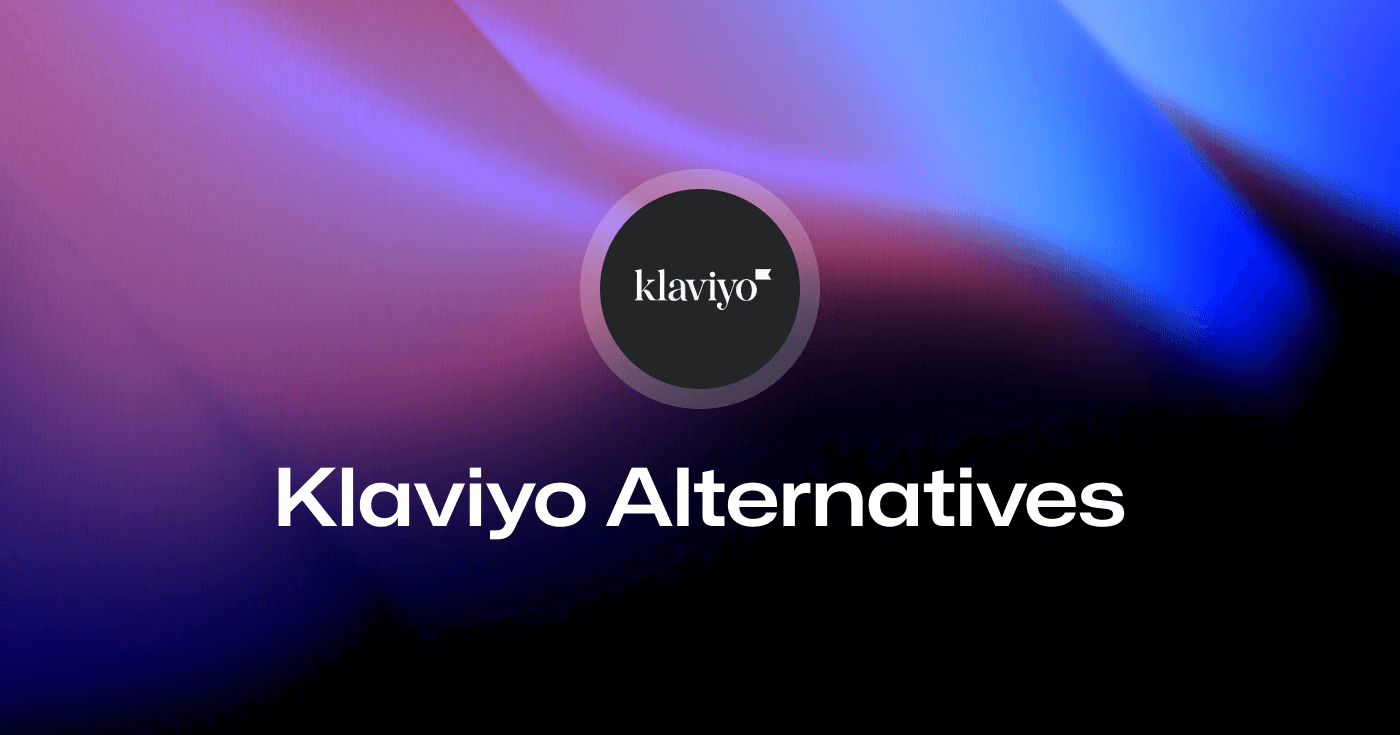
Discover the best Klaviyo alternatives for 2026, exploring features, pricing, and strengths that cater to various needs in email marketing.

Industries today rely significantly on effective email marketing solutions to engage customers, promote products, and drive conversions.
Klaviyo serves as a powerful tool designed for ecommerce businesses that seek to enhance their marketing efforts through email automation and advanced analytics.
However, with the increasing pricing and user dissatisfaction noted in customer reviews, some businesses are exploring Klaviyo alternatives that offer similar or better functionalities at a more attractive cost.
While Klaviyo boasts impressive capabilities, many users have pointed out notable issues, including:
To better serve your needs, this article aims to explore the top 8 Klaviyo alternatives available in 2026.
Based on user feedback sourced from G2, Capterra, and GetApp:
For a deeper analysis of customer sentiments, feel free to check the reviews on G2.
Alternative | Best For | Key Features | Pricing | Free Plan | Platforms Available |
|---|---|---|---|---|---|
Omnisend | Omnichannel marketing | Email & SMS | $16/mo (when billed annually) | Yes | Web |
Brevo | Budget-conscious businesses | SMS marketing, email automation, CRM tools | $9/mo (when billed annually) | Yes | Web, iOS, Android |
Mailchimp | Small businesses | Email templates, audience segmentation | $13/mo (when billed annually) | Yes | Web, iOS, Android |
ActiveCampaign | Advanced automation | CRM, email segmentation | $15/mo (when billed annually) | Yes | Web |
Constant Contact | Straightforward campaigns | Email templates, social media integration | $12/mo (when billed annually) | Yes | Web |
Drip | Ecommerce engagement | Workflow automation, deep ecommerce integrations | $39/mo (when billed annually) | No | Web |
Campaign Monitor | Customizable email designs | Drag-and-drop email builder, reporting | $12/mo (when billed annually) | Yes | Web, iOS |
Maestra | Unified omnichannel e-commerce marketing | Omnichannel Flow Builder, Real-Time CDP, Site Personalization, Integrated Loyalty & Referral Programs | $2,990/mo | No | Web |
Best for omnichannel marketing automation
Omnisend is designed for ecommerce marketers seeking a comprehensive omnichannel approach.
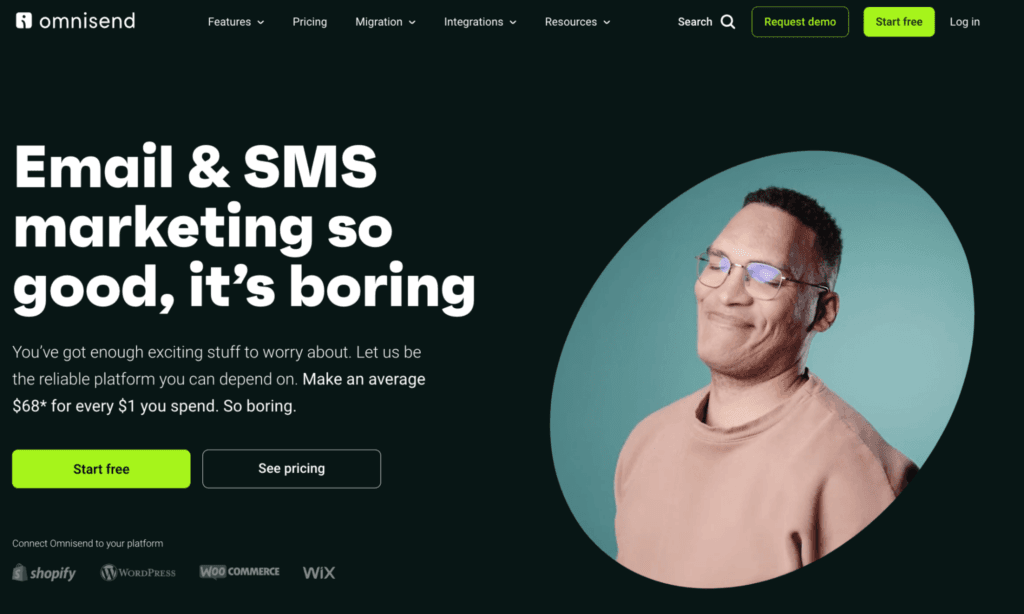
It combines email marketing with SMS and web push notifications to deliver a unified marketing experience.
Omnisend integrates seamlessly with platforms like Shopify, BigCommerce, and WooCommerce. You can view a full list of integrations here.
Omnisend provides a robust model:
For more details, check the pricing page.
Best for budget-conscious businesses
Brevo (formerly Sendinblue) stands out as a cost-effective alternative to Klaviyo, offering comprehensive email marketing solutions suitable for startups and small to medium-sized businesses.
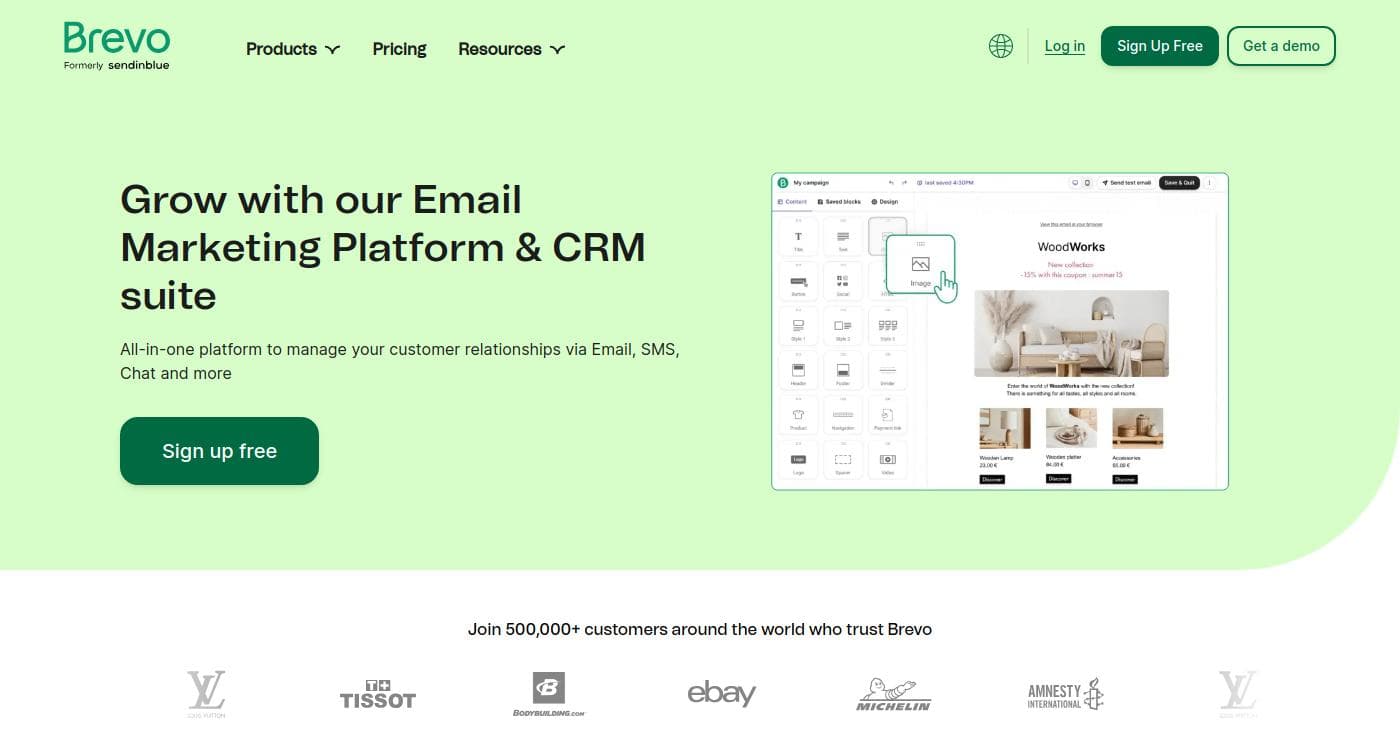
With features such as SMS marketing and a built-in CRM, Brevo provides an all-in-one solution that allows you to manage customer relationships seamlessly.
Brevo integrates with popular platforms such as WooCommerce, Shopify, and WordPress. For a complete list of integrations, visit their integrations page.
Brevo offers a tiered subscription model:
You can check their pricing page for full details.
Best for small businesses getting started
Mailchimp is a veteran in the email marketing space, making it a popular choice for beginners.
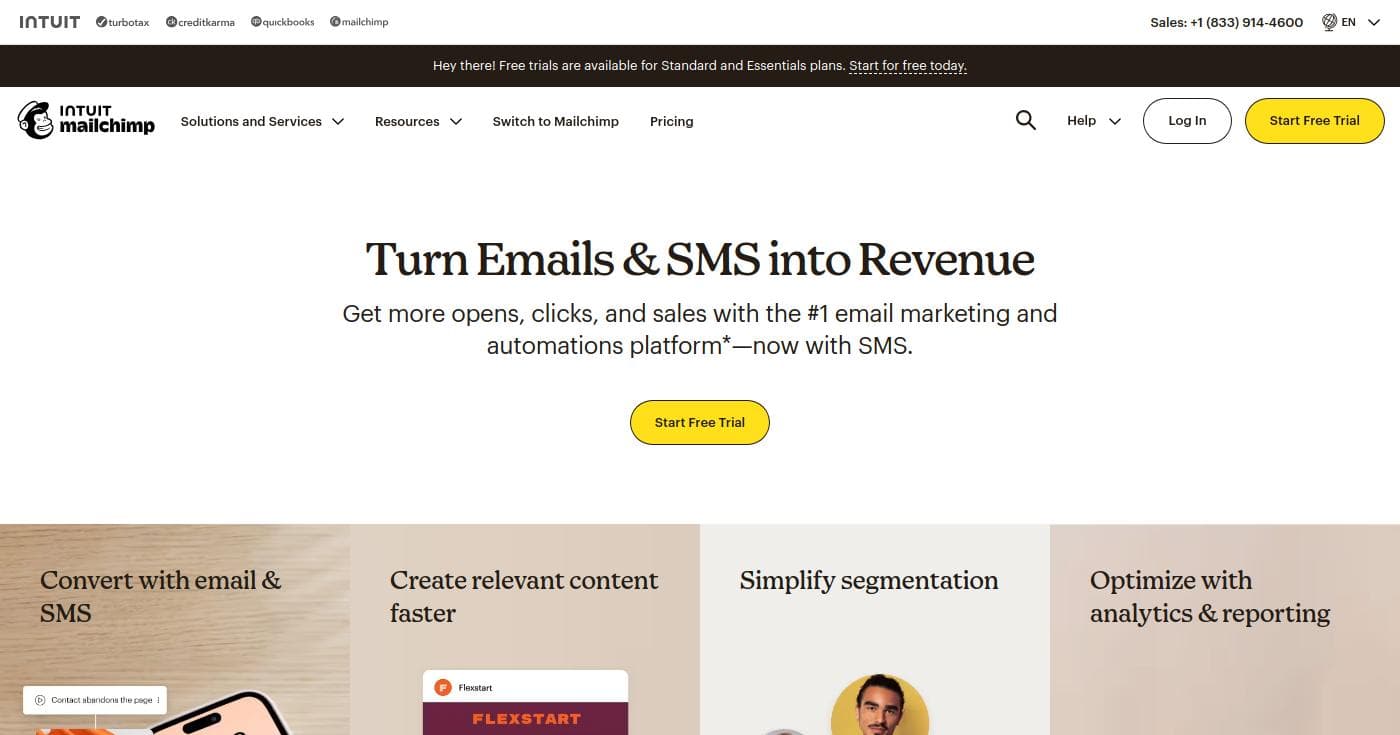
With its user-friendly design, Mailchimp provides extensive features for creating visually appealing email campaigns without the need for extensive technical skills.
Mailchimp provides integration with many popular platforms, including Shopify, WordPress, and WooCommerce. For more, visit their integrations page.
Mailchimp’s pricing is tiered as follows:
For precise pricing, consult their pricing page.
Best for advanced automation capabilities
ActiveCampaign excels with its powerful automation and CRM integrations, suitable for businesses looking to enhance customer engagement.
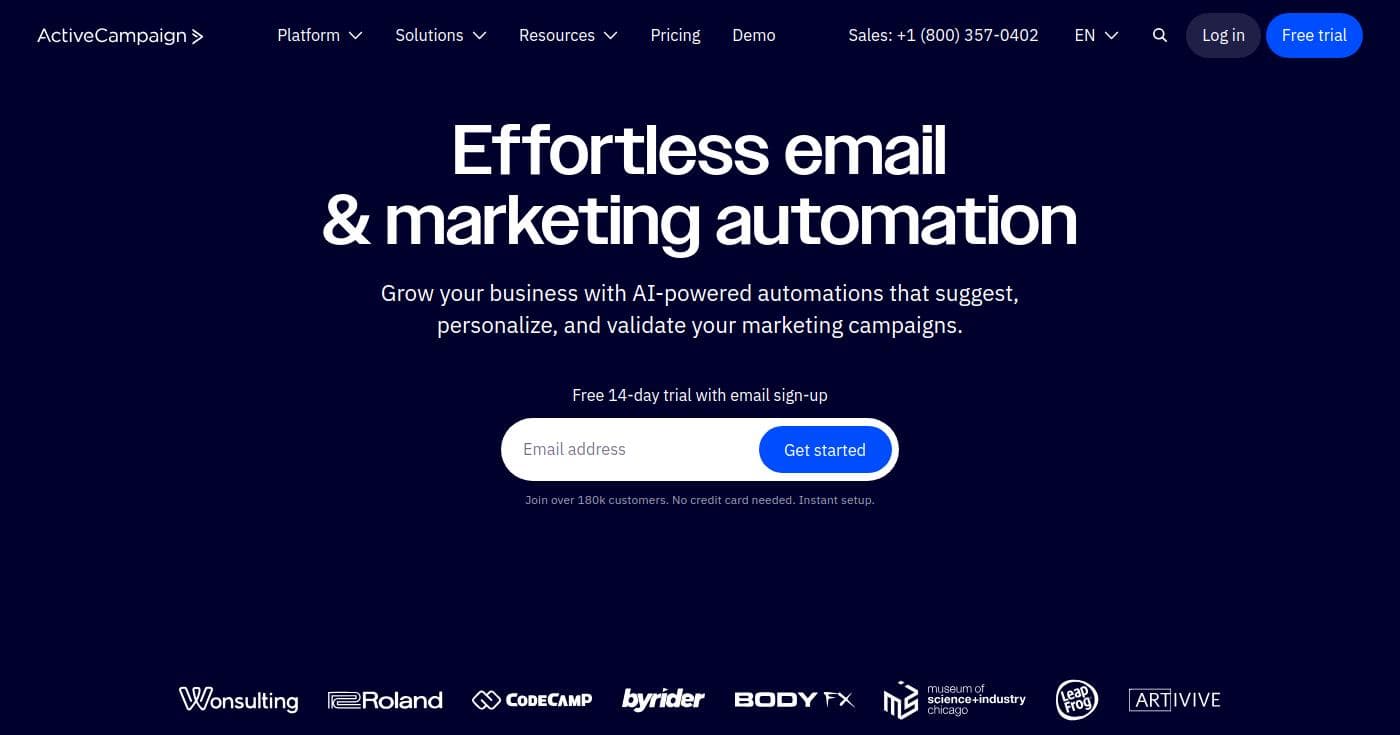
Its robust automation features allow users to create intricate workflows tailored to meet various customer needs.
ActiveCampaign supports numerous integrations, including Shopify, WordPress, and Zapier. Visit their integrations page for more.
ActiveCampaign’s pricing begins as follows:
You can view their complete pricing on their pricing page.
Best for straightforward email campaigns
Constant Contact offers an easy-to-use platform geared towards businesses looking for a simple yet effective email marketing solution.
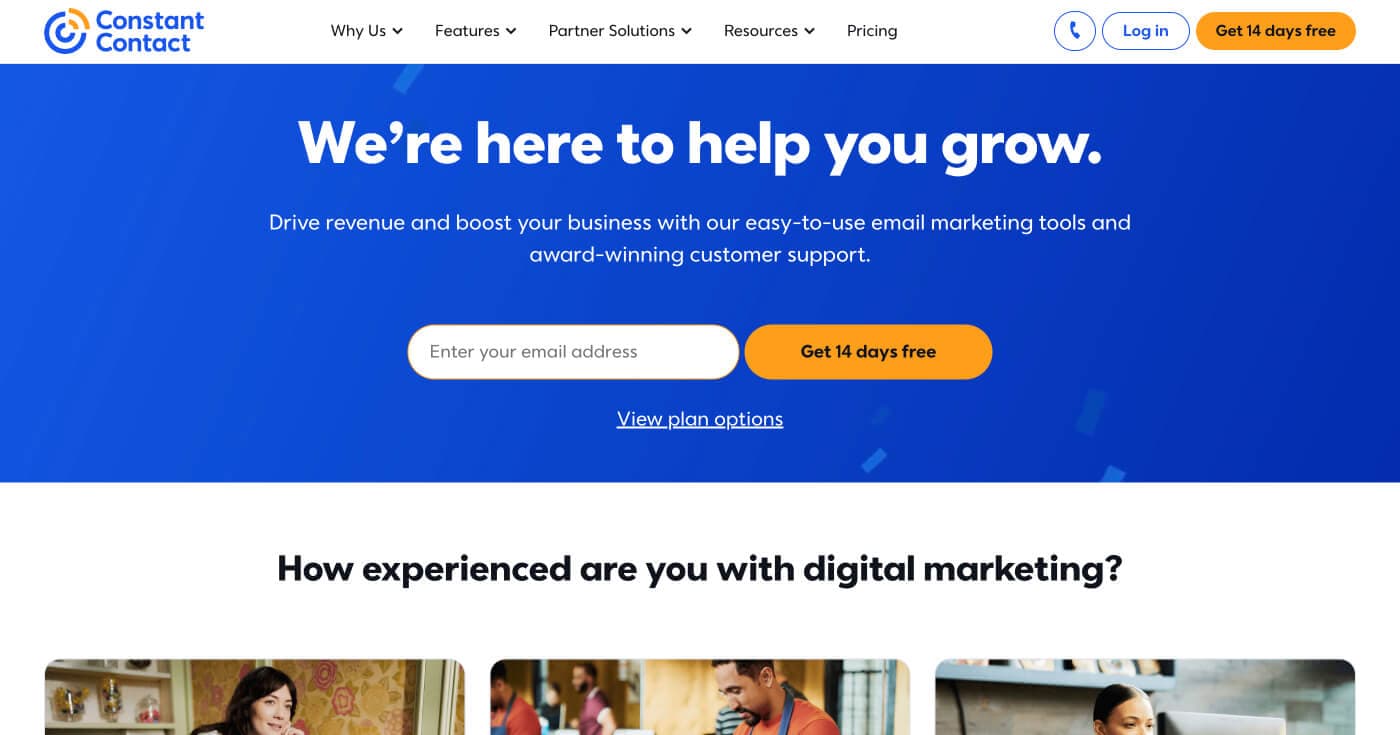
With a focus on user experience, it’s a great fit for those who prefer straightforward email campaigns.
Constant Contact integrates with various tools like Shopify, WordPress, and Eventbrite. For more, check their integrations.
Constant Contact’s pricing tiers include:
You can see more details on their pricing page.
Best for ecommerce customer engagement
Drip is specifically designed for ecommerce brands, providing tools tailored to boost customer engagement through personalized marketing strategies.
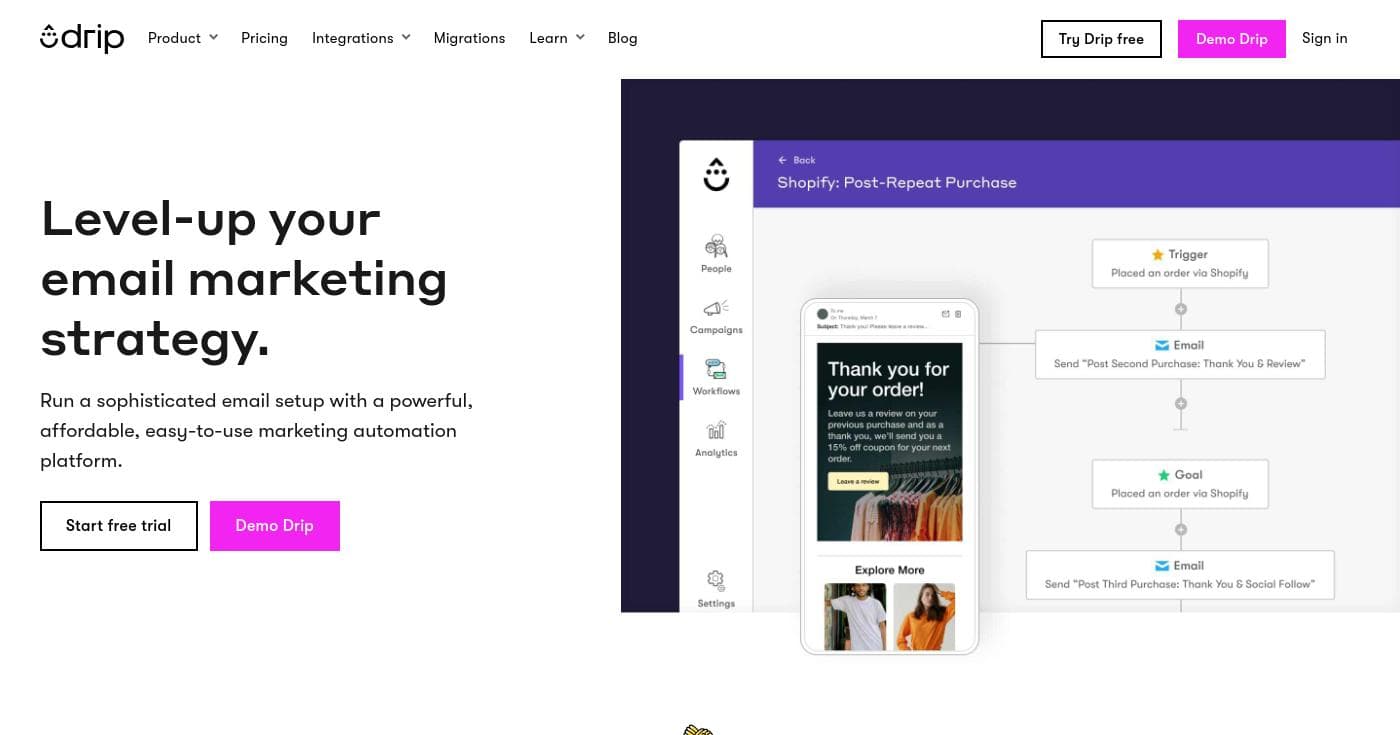
Drip integrates beautifully with ecommerce platforms, allowing stores to utilize customer data effectively.
Drip integrates with various platforms, including Shopify, WooCommerce, and Magento. Check out their integrations list for more information.
Drip offers competitive pricing:
For detailed pricing, see their pricing page.
Best for customizable email designs
Campaign Monitor focuses heavily on design, allowing teams to create visually engaging emails while ensuring effective marketing strategies.
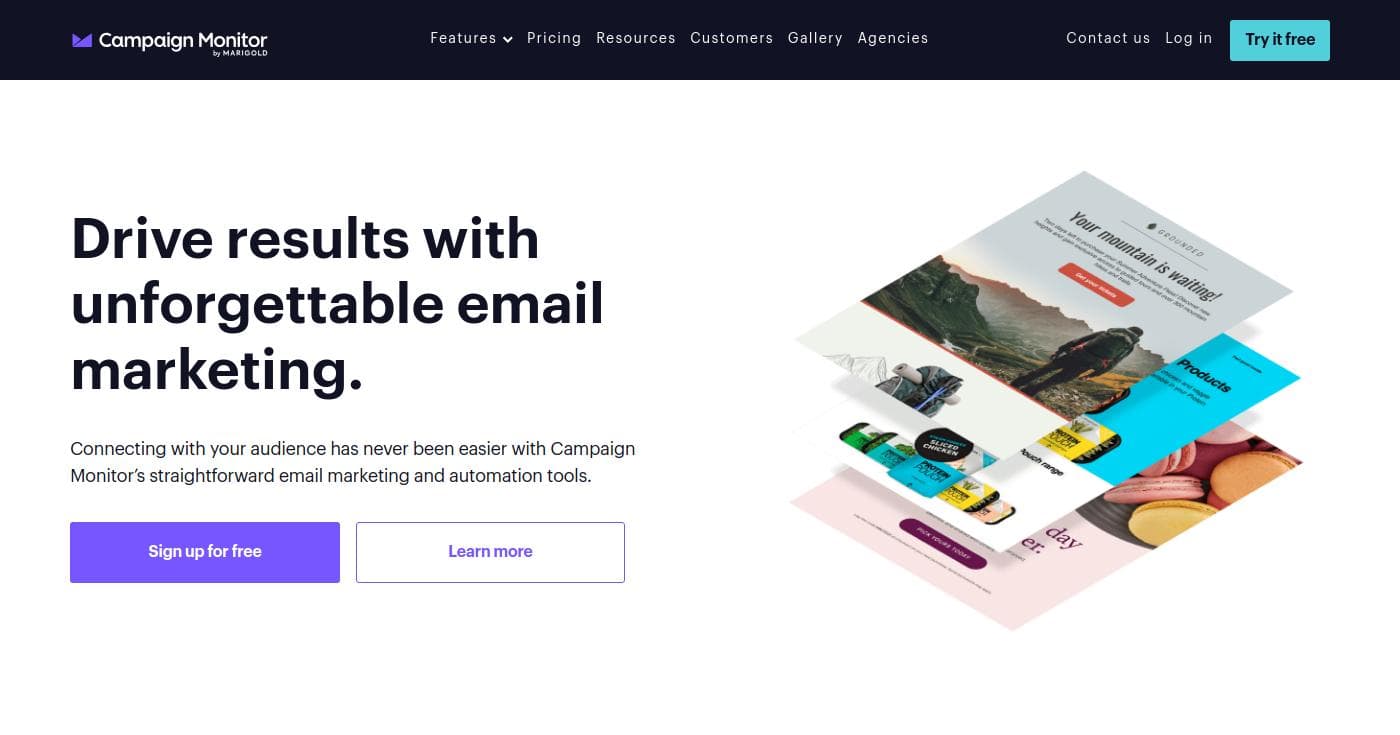
It’s an excellent option for marketers interested in extensive customization capabilities.
Campaign Monitor integrates with various platforms, including Shopify and WooCommerce. Explore their integrations here.
Campaign Monitor’s pricing tiers include:
You can visit their pricing page for more details.
Best for unified omnichannel e-commerce marketing
Maestra is a comprehensive all-in-one platform designed specifically for e-commerce brands, combining real-time CDP, email, SMS, push notifications, messengers, site personalization, loyalty, referrals, and paid media optimization under one roof.
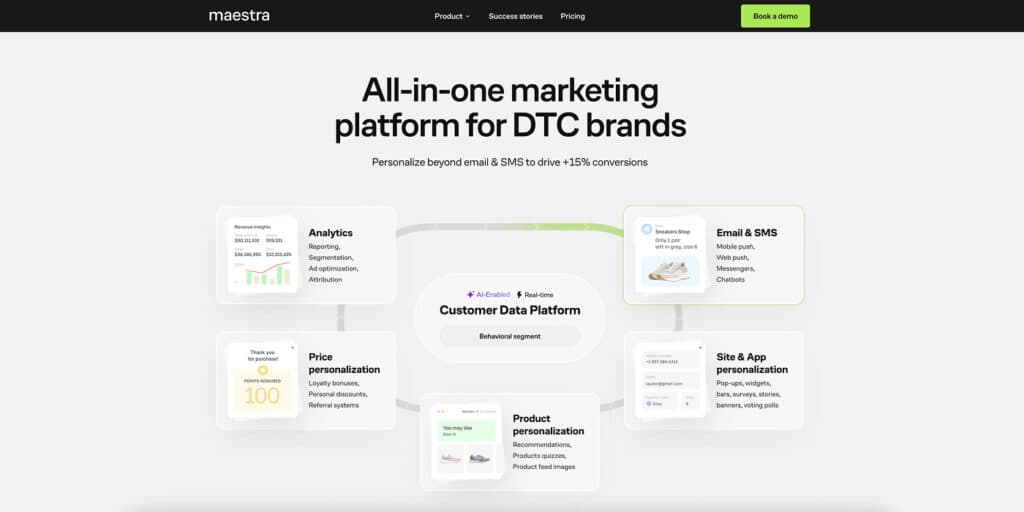
With real-time segmentation that scales to millions of contacts and advanced product-based triggers like price drops and low stock alerts, Maestra eliminates the need for multiple disconnected marketing tools.
Maestra provides 150+ pre-built native integrations across e-commerce platforms (including one-click Shopify setup), marketing and analytics tools, social media channels, and customer support systems.
Custom API integrations are included at no additional cost, ensuring Maestra works seamlessly with any tech stack.
Maestra’s pricing includes:
You can visit their pricing page for more details.
Selecting the ideal Klaviyo alternative depends on your specific requirements and use case.
Consider these crucial factors:
The best Klaviyo alternatives include Brevo, Mailchimp, Omnisend, ActiveCampaign, Constant Contact, Drip, and Campaign Monitor, each catering to different needs and budgets.
Brevo tends to be more affordable than Klaviyo, providing many features aimed at budget-conscious users and an easy-to-use interface.
Klaviyo does not offer a free plan, while some alternatives like Brevo and Mailchimp do have free tiers available to get started.
Klaviyo alternatives often include email marketing automation, customer segmentation, CRM integrations, reporting and analytics, and multichannel marketing.
Many small businesses find Klaviyo’s pricing structure becomes prohibitive as their subscriber lists grow, making alternative solution more appealing.
When searching for the right email marketing solution, it’s important to assess your unique business needs, budget, and required features.
Each of the highlighted Klaviyo alternatives can serve different marketing strategies effectively, whether you’re an ecommerce startup or an established brand.
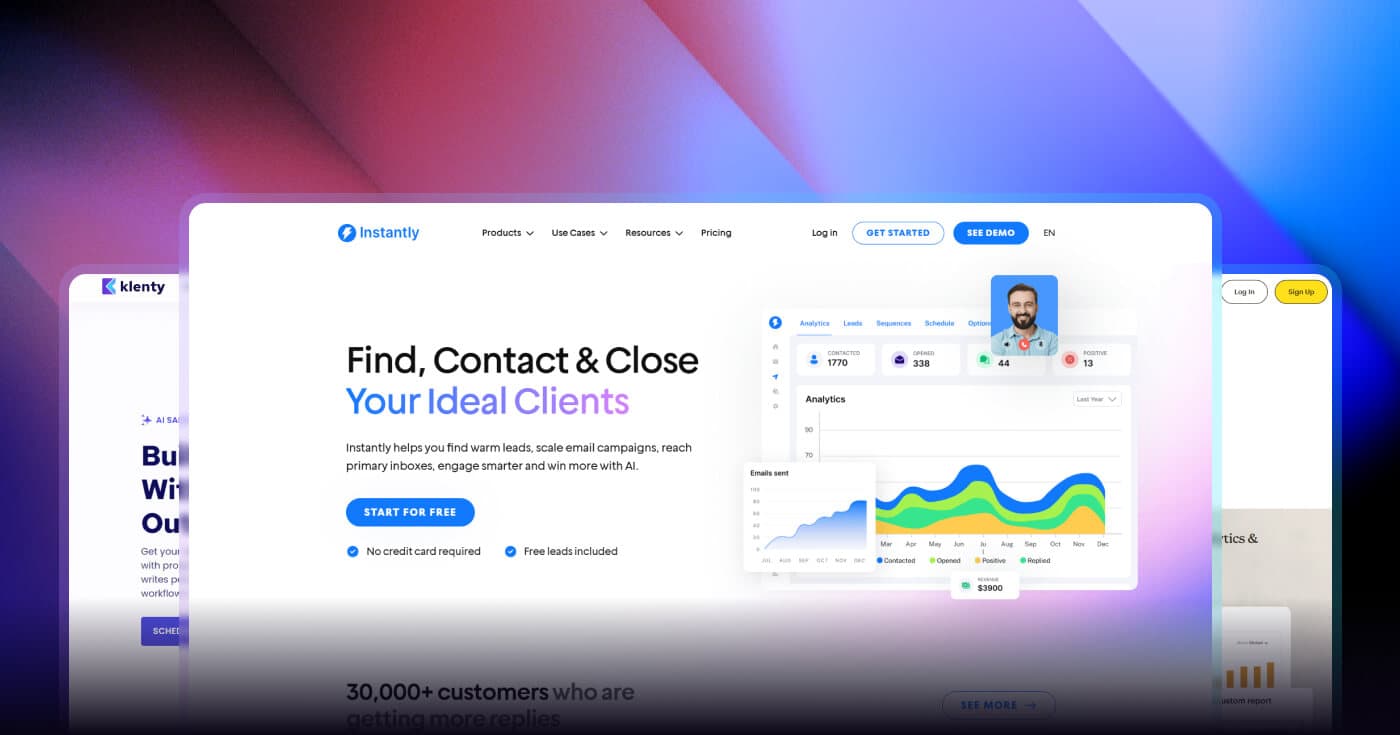
Discover the top 7 cold email tools for automated sales campaigns. Compare features, pricing, and automation capabilities to boost your outreach results.
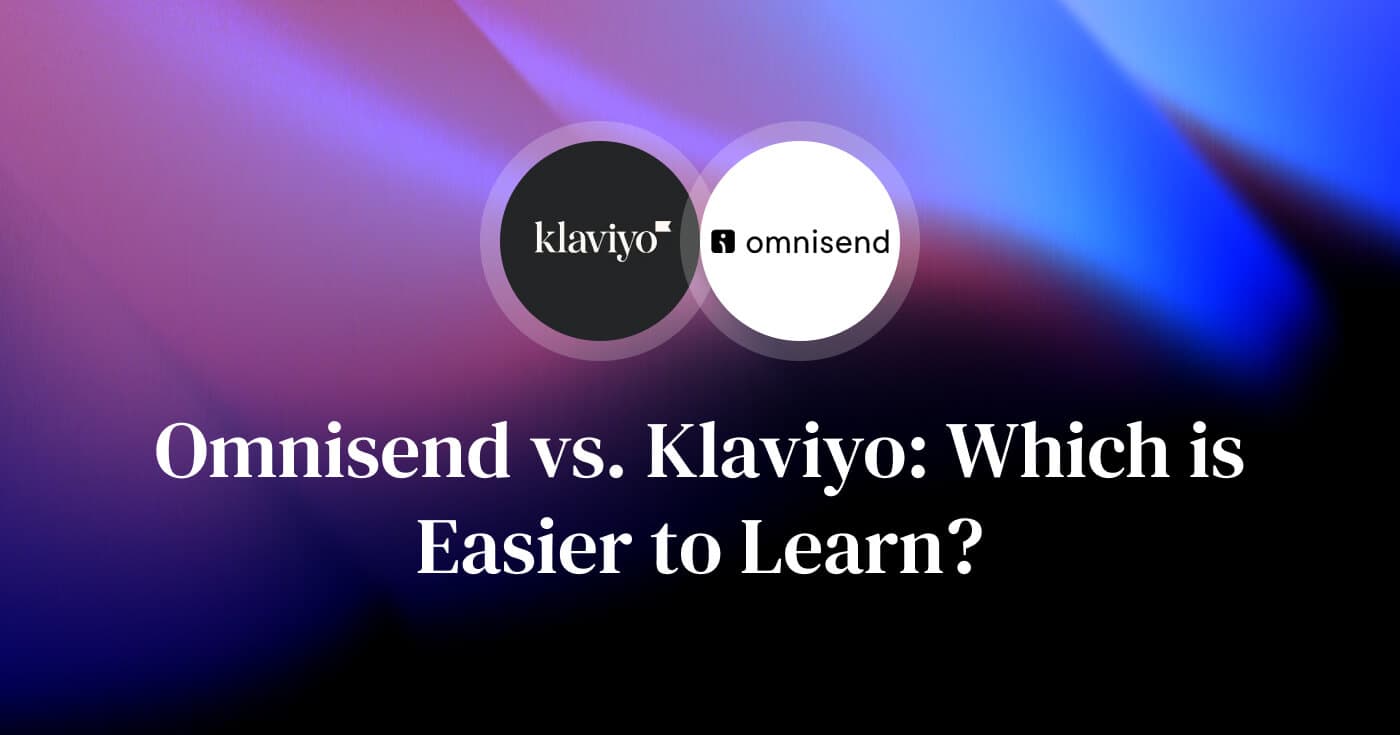
Omnisend vs. Klaviyo in 2026: a learning-curve comparison for ecommerce teams. See how each platform handles products in emails, follow-ups, automations, and support.
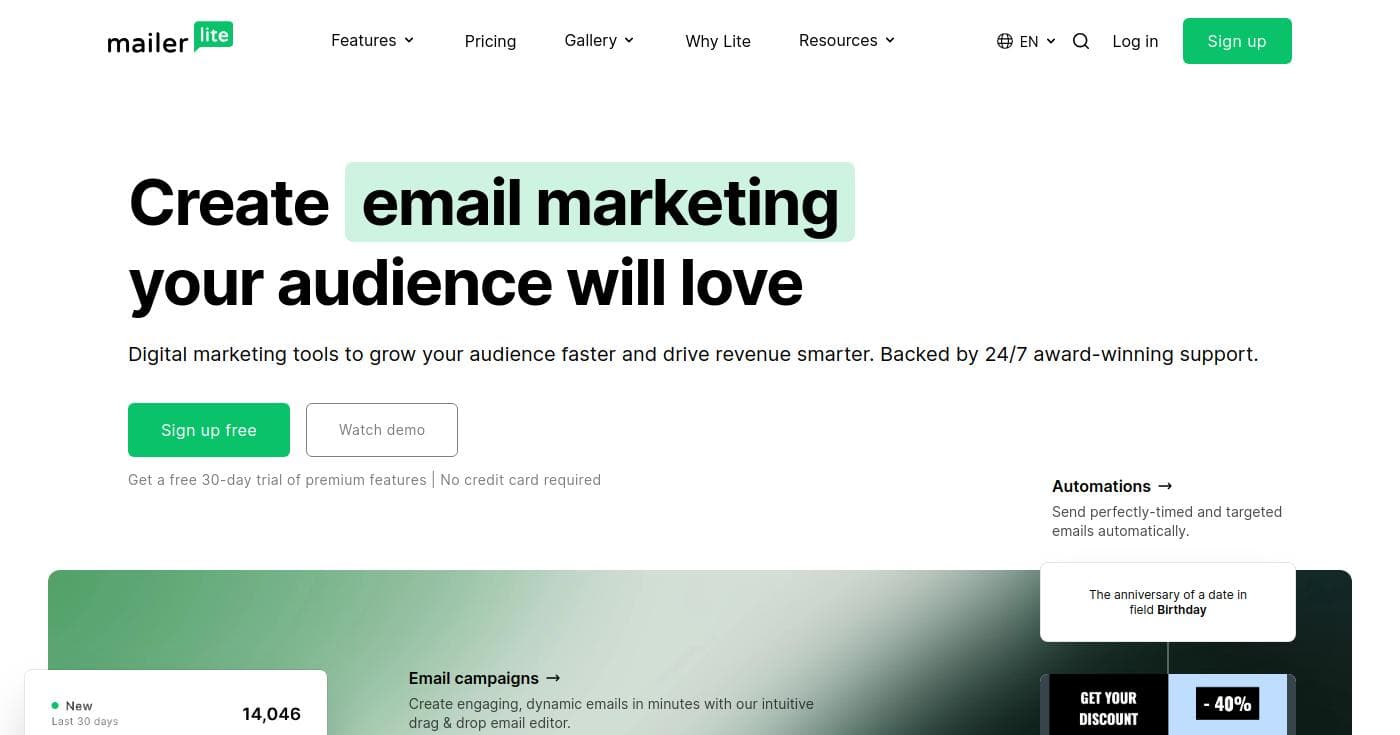
Discover what MailerLite is, its features, benefits, and pricing plans, and how it can enhance your email marketing strategies this year.